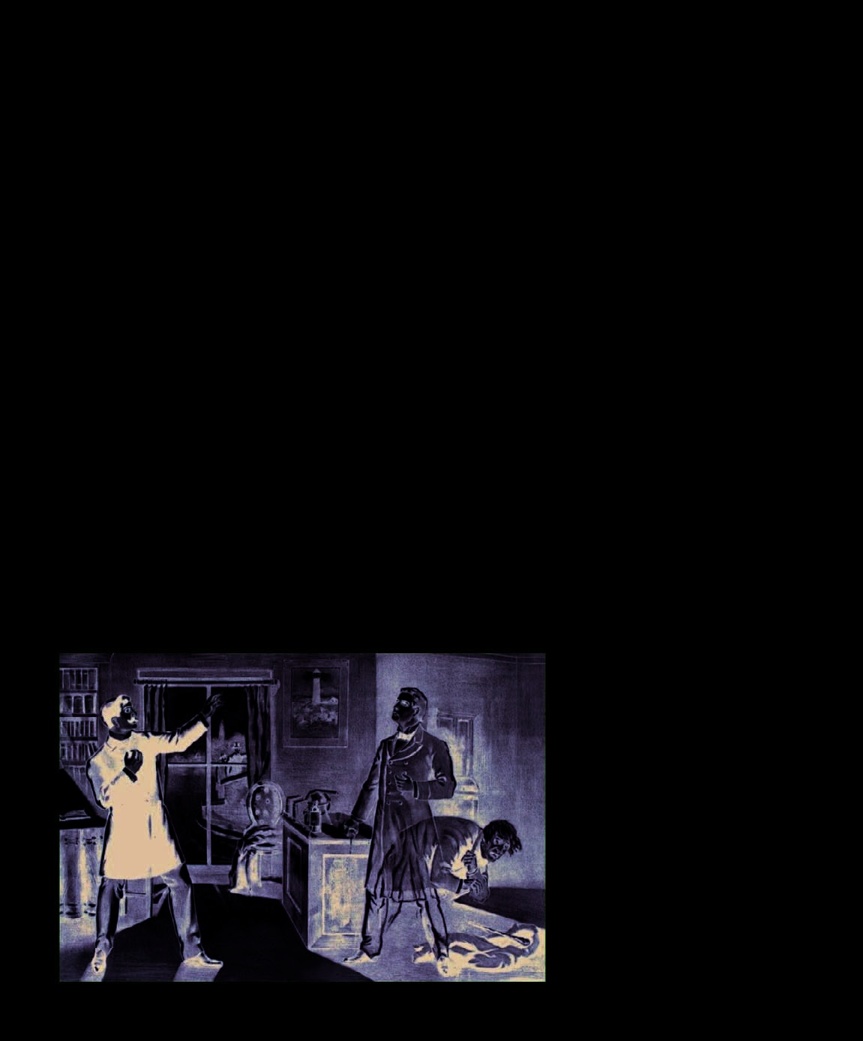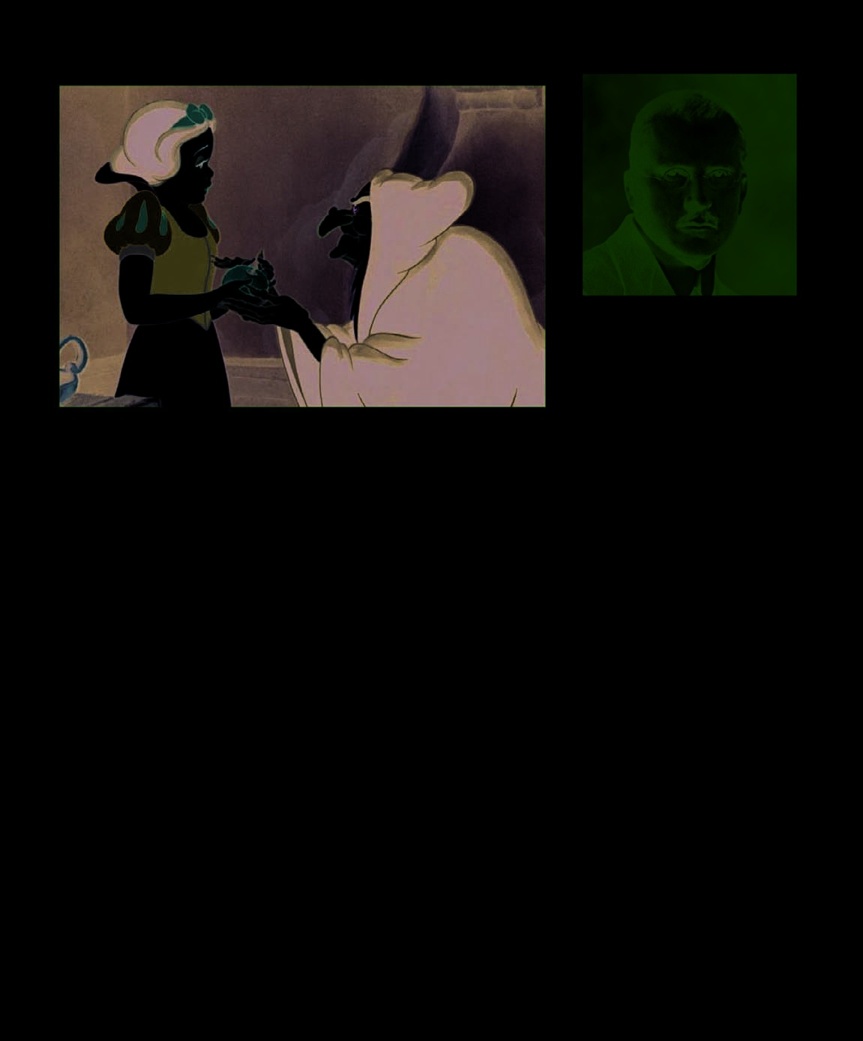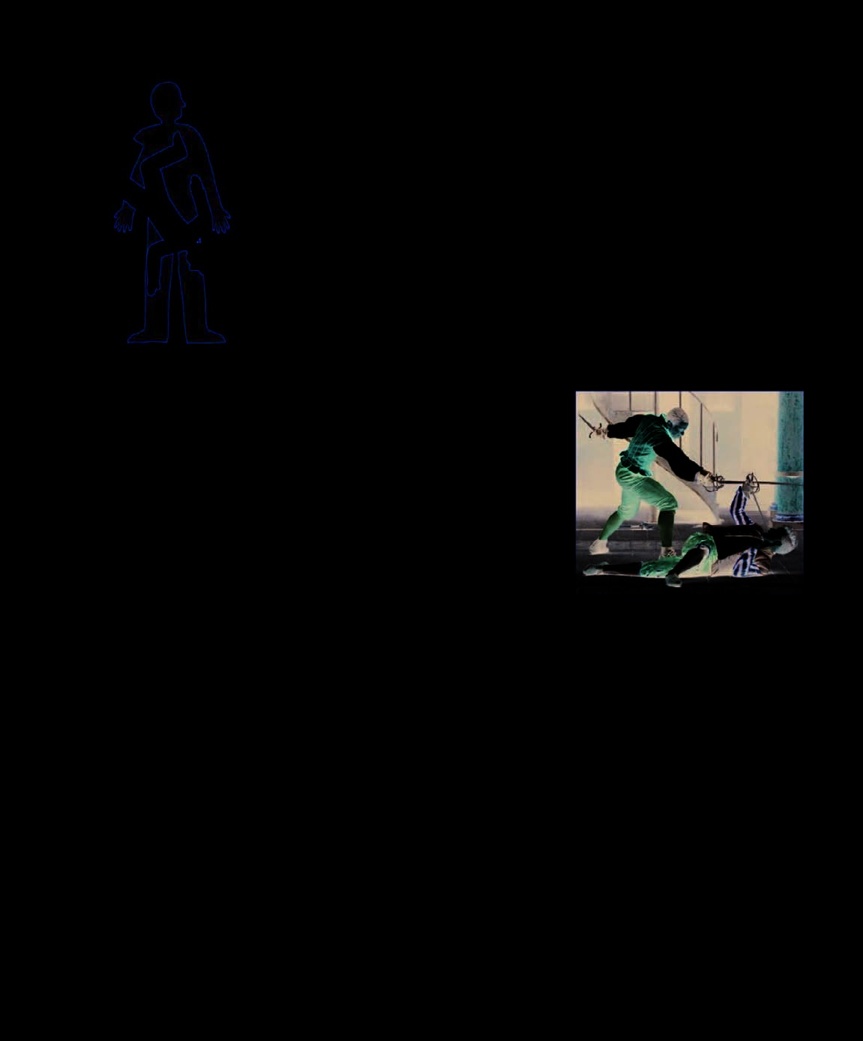The Psychology Book (34 page)
Read The Psychology Book Online
Authors: Unknown

impressions ever made” by a man
human experience. The Latin word
The nature of an archetype is
or woman, so they necessarily
archetypum
translates as “first-
such that we recognize it instantly
reflect the traditional ideas of
molded,” and Jung believed that
and are able to attach to it a specific,
masculine and feminine. ❯❯
archetypes are memories from the
emotional meaning. Archetypes
experiences of our first ancestors.
can be associated with many kinds
They act as templates within the
of behavioral and emotional
psyche that we use unconsciously
patterns, but there are certain
to organize and understand our own
prominent ones that are highly
experience. We may fill out the gaps
recognizable, such as The Wise Old
with details from our individual
Man, The Goddess, The Madonna,
lives, but it is this preexisting
the Great Mother, and The Hero.
substructure in the unconscious
The Persona is one of the most
that is the framework that allows
important archetypes described by
us to make sense of our experience.
Jung. He recognized early in his
Archetypes can be thought of as
own life that he had a tendency to
inherited emotional or behavioral
share only a certain part of his
patterns. They allow us to recognize
personality with the outside world.
a particular set of behaviors or
He also recognized this trait in
emotional expressions as a unified
other people, and noted that human
pattern that has meaning. It seems
beings divide their personalities
that we do this instinctively, but
into components, selectively
Jung says that what seems to be
sharing only certain components
instinct is actually the unconscious
of their selves according to the
Eve is one representation
of the
use of archetypes.
environment and situation. The self
Anima, the female part of a man’s
Jung suggests that the psyche
that we present to the world—our
unconscious. Jung says she is “full
is composed of three components:
public image—is an archetype,
of snares and traps, in order that man
the ego, the personal unconscious,
which Jung calls the “Persona.”
should fall… and life should be lived.”

106 CARL JUNG
moods and reactions, and can
True Self. When fully realized, this
manifest themselves as prophetic
archetype is the source of wisdom
statements (Anima) or unbending
and truth, and is able to connect
rationality (Animus).
the self to the spiritual. Jung
Jung defines one archetype as
stressed that self-realization does
representing the part of ourselves
not happen automatically, it must
All the most powerful
we do not want the world to see. He
be consciously sought.
ideas in history go back
calls it the Shadow, and it is the
to archetypes.
opposite of the Persona, representing
Archetypes in dreams
Carl Jung
all our secret or repressed thoughts
The archetypes are of significant
and the shameful aspects of our
importance in the interpretation
character. It appears in the Bible
of dreams. Jung believed that
as the devil, and in literature as
dreams are a dialogue between the
Dr. Jekyll’s Mr. Hyde. The Shadow is
conscious self and the eternal (the
the “bad” side of ourselves that we
ego and the collective unconscious),
project onto others, and yet it is not
and that the archetypes operate
The Animus is represented in our
entirely negative; it may represent
as symbols within the dream,
culture as the “real man;” he is the
aspects that we choose to suppress
facilitating the dialogue.
muscle man, the commander of
only because they are unacceptable
The archetypes have specific
soldiers, the cool logician, and
in a particular situation.
meanings in the context of dreams.
the romantic seducer. The Anima
Of all the archetypes, the most
For instance, the archetype of The
appears as a wood nymph, a virgin,
important is the True Self. This is a
Wise Old Man or Woman may be
a seductress. She can be close to
central, organizing archetype that
represented in a dream by a
nature, intuitive, and spontaneous.
attempts to harmonize all other
spiritual leader, parent, teacher, or
She appears in paintings and
aspects into a unified, whole self.
doctor—it indicates those who offer
stories as Eve, or Helen of Troy,
According to Jung, the real goal of
guidance, direction, and wisdom.
or a personality such as Marilyn
human existence is to achieve an
The Great Mother, an archetype
Monroe, bewitching men or
advanced, enlightened psychological
who might appear as the dreamer’s
sucking the life from them. As
state of being that he refers to as
own mother or grandmother,
these archetypes exist in our
“self-realization,” and the route to
represents the nurturer. She
unconscious, they can affect our
this lies in the archetype of the
provides reassurance, comfort, and
validation. The Divine Child, the
archetype that represents your True
Self in its purest form, symbolizing
innocence or vulnerability, would
appear as a baby or child in
dreams, suggesting openness or
potential. And lest the ego grow
too large, it is kept in check by the
appearance of the Trickster, a
playful archetype that exposes the
dreamer’s vulnerabilities and plays
jokes, preventing the individual
from taking himself and his desires
too seriously. The Trickster also
Dr. Jekyll transforms
into the evil
Mr. Hyde in a story by Robert Louis
Stevenson that explores the idea of the
“darker self,” through a character that
embodies Jung’s Shadow archetype.

PSYCHOTHERAPY 107
Carl Jung
Carl Gustav Jung was born
in a small Swiss village to an
educated family with a fair
share of eccentrics. He was
close to his mother, though she
suffered from bouts of
appears as the Norse half-god Loki,
The tale of Snow White
can be
depression. A talented
the Greek god Pan, the African
found all over the world with minor
linguist, Jung mastered many
spider god Anansi, or simply a
variations. Jung attributed the universal
European languages as well
popularity of fairy tales and myths
magician or clown.
as several ancient ones,
to their use of archetypal characters.
including Sanskrit. He married
Using the archetypes
Emma Rauschenbach in 1903
The archetypes exist in our minds
collective unconscious and its
and they had five children.
before conscious thought, and can
contents affect the conscious state.
Jung trained in psychiatry,
therefore have an immensely
According to Jung, much of what
but after meeting Sigmund
powerful impact on our perception
we generally attribute to deliberate,
Freud in 1907, he became a
of experience. Whatever we may
reasoned, conscious thinking is
psychoanalyst and Freud’s
heir apparent. However, the
consciously think is happening,
actually already being guided by
pair grew estranged over
what we choose to perceive—and
unconscious activity, especially the
theoretical differences and
therefore experience—is governed
organizing forms of the archetypes.
never met again. In the years
by these preformed ideas within
In addition to his ideas of the
following World War I, Jung
the unconscious. In this way, the
collective unconscious and the
traveled widely through Africa,
archetypes, Jung was the first to
America, and India, studying
explore the practice of word
native people and taking
association, and he also introduced
part in anthropological and
the concepts of the extrovert and
archaeological expeditions.
introvert personality types. These
He became a professor at the
ultimately inspired widely used
University of Zurich in 1935,
By understanding the
personality tests such as the
but gave up teaching to
unconscious we free ourselves Myers–Briggs Type Indicator (MBTI).
concentrate on research.
from its domination.
Jung’s work was influential in the
Key works
Carl Jung
fields of psychology, anthropology,
and spirituality, and his archetypes
1912
Symbols of Transformation
are so widespread that they can
1934
The Archetypes and the
easily be identified in film, literature,
Collective Unconscious
and other cultural forms that attempt
1945
On the Nature of Dreams
to portray universal characters. ■

108
THE STRUGGLE
BETWEEN THE LIFE AND
DEATH INSTINCTS PERSISTS
THROUGHOUT LIFE
MELANIE KLEIN (1882–1960)
IN CONTEXT
APPROACH
T
he theme of opposing
forces has always intrigued
writers, philosophers, and
scientists. Literature, religion, and
Psychoanalysis
art are filled with tales of good and
BEFORE
evil, of friend and foe. Newtonian
physics states that stability or
1818
German philosopher
balance is achieved through one
Arthur Schopenhauer states
force being countered by an equal
that existence is driven by the
and opposite force. Such opposing
will to live, which is constantly
forces appear to be an essential
being opposed by an equally
part of existence, and perhaps
forceful death drive.
the most powerful of them are
